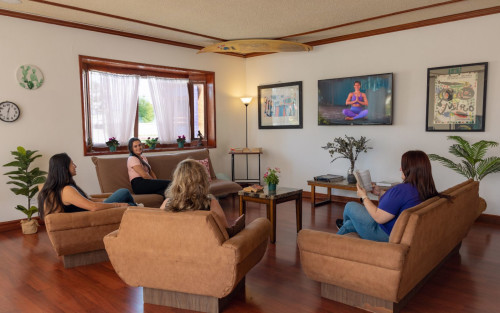






Costa Rica Recovery
Verified Center
This provider's information has been quality-checked by Recovery.com's Research Team for accuracy and completeness, including center verification through appropriate third-party organizations.
Treatment Focus
This center treats substance use disorders and co-occurring mental health conditions. Your treatment plan addresses each condition at once with personalized, compassionate care for comprehensive healing.
Primary Level of Care
Offering intensive care with 24/7 monitoring, residential treatment is typically 30 days and can cover multiple levels of care. Length can range from 14 to 90 days typically.
Treatment Focus
This center treats substance use disorders and co-occurring mental health conditions. Your treatment plan addresses each condition at once with personalized, compassionate care for comprehensive healing.
Primary Level of Care
Offering intensive care with 24/7 monitoring, residential treatment is typically 30 days and can cover multiple levels of care. Length can range from 14 to 90 days typically.
Provider's Policy
Most of our participants opt for private pay upfront. We understand that financial flexibility is important, which is why, if you’re eligible, we may offer customized payment plans. Our admissions team will provide a transparent cost breakdown for the treatment plans you are interested in.
Costa Rica Recovery
Costa Rica Recovery
About Costa Rica Recovery
Costa Rica Recovery helps clients facing addiction heal in every aspect of their lives, especially those who have struggled with chronic relapse. Guided by trauma-informed therapists and clinicians in long-term recovery, their residential programs blend holistic therapies, medical support, and close-knit community care with a smaller capacity of just 10–18 clients to ensure personalized attention. Located downtown near medical facilities, they offer cost-effective treatment abroad with quick admissions, a commitment to privacy, and a private pay model with partial scholarships available quarterly.
Choose a Program Length That Feels Right
Costa Rica Recovery offers 30-, 60-, and 90-day residential programs—shorter stays focus on building a strong foundation of recovery principles and healthy coping strategies, while extended programs provide the time and space to heal deeply, address underlying emotional challenges, and practice relapse prevention techniques. The 90-day option is especially transformative, helping clients solidify new neural pathways, break free from dysfunctional relationships, and prepare for a stable, fulfilling future. Beyond treatment, the program supports clients in rebuilding their lives—working through guilt, achieving acceptance, practicing forgiveness, and even planning for financial stability.
Experience Comfort in an Urban Oasis
Costa Rica Recovery is located in the Rohrmoser neighborhood of San José, near the diplomatic district, giving clients access to the local recovery community. The center offers a classic Costa Rican home environment—warm and welcoming rather than overly fancy—with shared bedrooms and plenty of open social spaces. A serene yoga shala provides room for meditation, reading, or quiet reflection, while a French chef prepares organic, homemade meals that nourish the body.
Move Forward with Clarity, Purpose, and Support
Lasting recovery means more than completing a program—it’s about preparing for life after treatment. Throughout their stay, the team works closely with each person to create a plan that supports their next steps, whether that’s finding safe housing, returning to work, continuing therapy, or managing medications to ease anxiety and support stability. This process often includes connecting clients with AA or 12-Step meetings, setting up community resources, and ensuring they have the tools and confidence to maintain their progress.
Highlights from the Center
Highlights
These highlights are provided by and paid for by the center.
1-on-1 Counseling
Therapeutic Location
Wellness Emphasis
Beach Access
Center Overview
Treatment Focus
This center treats substance use disorders and co-occurring mental health conditions. Your treatment plan addresses each condition at once with personalized, compassionate care for comprehensive healing.
Insurance Accepted
Cash Pay Rates
Estimated Cash Pay Rate
Center pricing can vary based on program and length of stay. Contact the center for more information. Recovery.com strives for price transparency so you can make an informed decision.
Meet Your Care Team
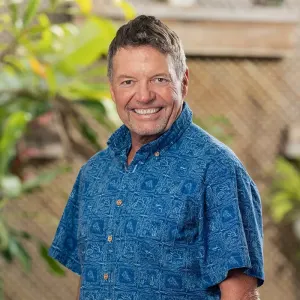
Scott Huseby
President & Hope Dealer-In-Chief (CEO)

Sharon Fallas Moya
Clinical Team Director

Rachel Ena Baxter
Managing Director

Laura Elizondo
Psychologist
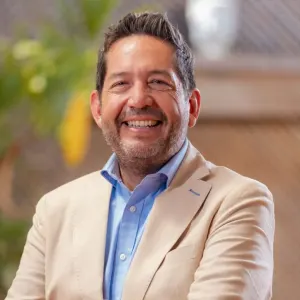
James Villalobos, RN, V
Business Development
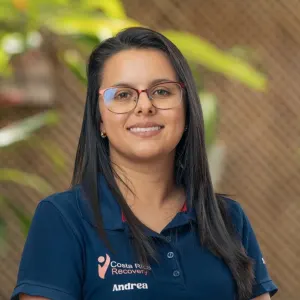
Andrea Céspedes Gamboa, LCSW
Social Worker

Pilar Arce
Recovery Counselor
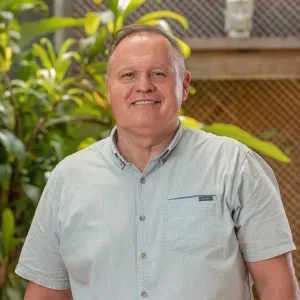
Richard LeBow
Recovery Counselor

Laura Sibaja
Sound Healing Therapist
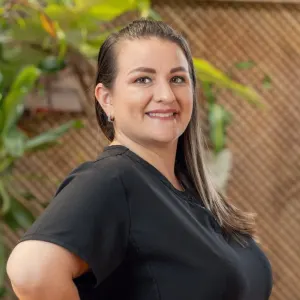
Silvia Chaves Rodriguez
Nurse Residential Coordinator
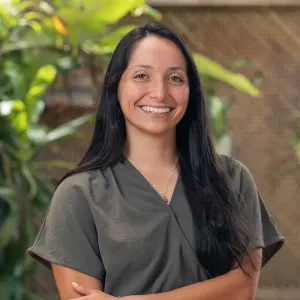
Mariana Guevara Morales
Operations Supervisor / Occupational Therapist

Marco Morris
Facilities & Activities Manager

Luz Mary Machado
Head Chef
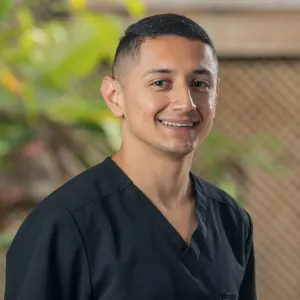
Cesar Murillo Jara
Nurse Residential Coordinator

Indira Aguilar Fallas
Nurse Residential Coordinator
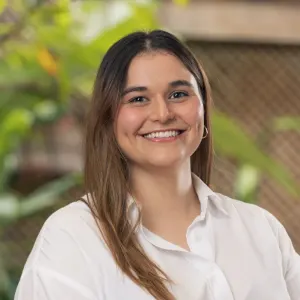
Cecilia Simón Solano
Residential Coordinator
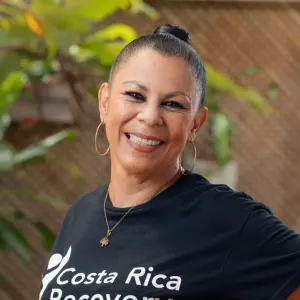
Marianella Zuñiga Loria (Nela)
Support Staff
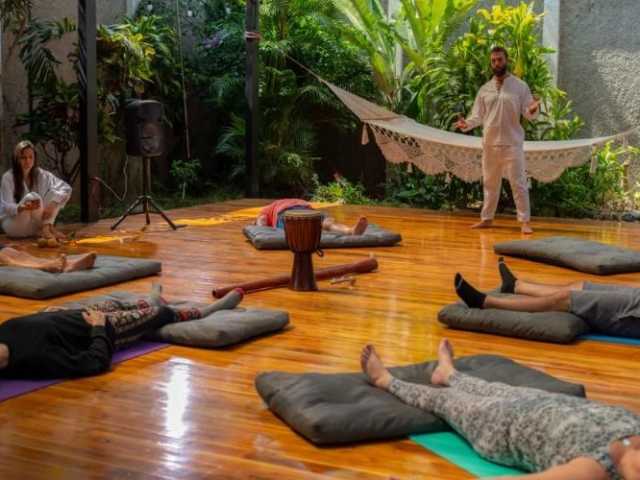



Levels of Care






Your Care Options
Specializations
Alcohol
Using alcohol as a coping mechanism, or drinking excessively throughout the week, signals an alcohol use disorder.
Anxiety
Anxiety is a common mental health condition that can include excessive worry, panic attacks, physical tension, and increased blood pressure.
Benzodiazepines
Benzodiazepines are prescribed to treat anxiety and sleep issues. They are highly habit forming, and their abuse can cause mood changes and poor judgement.
Chronic Relapse
Consistent relapse occurs repeatedly, after partial recovery from addiction. This condition requires long-term treatment.
Cocaine
Cocaine is a stimulant with euphoric effects. Agitation, muscle ticks, psychosis, and heart issues are common symptoms of cocaine abuse.
Drug Addiction
Drug addiction is the excessive and repetitive use of substances, despite harmful consequences to a person's life, health, and relationships.
Holistic
A non-medicinal, wellness-focused approach that aims to align the mind, body, and spirit for deep and lasting healing.
Opioids
Opioids produce pain-relief and euphoria, which can lead to addiction. This class of drugs includes prescribed medication and the illegal drug heroin.
Who We Treat
Young Adults
Emerging adults ages 18-25 receive treatment catered to the unique challenges of early adulthood, like college, risky behaviors, and vocational struggles.
LGBTQ+
Addiction and mental illnesses in the LGBTQ+ community must be treated with an affirming, safe, and relevant approach, which many centers provide.
Men and Women
Men and women attend treatment for addiction in a co-ed setting, going to therapy groups together to share experiences, struggles, and successes.
Midlife Adults
For adults ages 40+, treatment shifts to focus on the unique challenges, blocks, and risk factors of their age group, and unites peers in a similar community.
Pregnant Women
Addiction and mental health treatment meets the clinical and psychological needs of pregnant women, ensuring they receive optimal care in all areas.
Professionals
Busy, high-ranking professionals get the personalized treatment they need with greater accommodations for work, privacy, and outside communication.
Approaches
Evidence-Based
A combination of scientifically rooted therapies and treatments make up evidence-based care, defined by their measured and proven results.
Holistic
A non-medicinal, wellness-focused approach that aims to align the mind, body, and spirit for deep and lasting healing.
Personalized Treatment
The specific needs, histories, and conditions of individual patients receive personalized, highly relevant care throughout their recovery journey.
Therapies
1-on-1 Counseling
Patient and therapist meet 1-on-1 to work through difficult emotions and behavioral challenges in a personal, private setting.
Meditation & Mindfulness
A practiced state of mind that brings patients to the present. It allows them to become fully aware of themselves, their feelings, and the present moment.
Trauma-Specific Therapy
This form of talk therapy addresses any childhood trauma at the root of a patient's current diagnosis.
Rational Emotive Behavior Therapy
A type of cognitive therapy that identifies negative self-defeating thoughts and behaviors, rewriting beliefs to be positive, empowering, and present.
Mindfulness Therapy
This ancient practice can be mental, emotional, and even spiritual. In meditation, you focus your attention on the present moment without judgement.
Art Therapy
Visual art invites patients to examine the emotions within their work, focusing on the process of creativity and its gentle therapeutic power.
Dance Therapy
This experiential therapy uses dance to improve body awareness, physical health, and social skills.
Conditions We Treat
Pornography Addiction
A person with a porn addiction is emotionally dependent on pornography to the point that it interferes with their daily life and relationships.
Grief and Loss
Grief is a natural reaction to loss, but severe grief can interfere with your ability to function. You can get treatment for this condition.
Personality Disorders
Personality disorders destabilize the way a person thinks, feels, and behaves. If untreated, they can undermine relationships and lead to severe distress.
Anger
Although anger itself isn't a disorder, it can get out of hand. If this feeling interferes with your relationships and daily functioning, treatment can help.
Anxiety
Anxiety is a common mental health condition that can include excessive worry, panic attacks, physical tension, and increased blood pressure.
Bipolar
This mental health condition is characterized by extreme mood swings between depression, mania, and remission.
Burnout
Burnout entails mental and physical exhaustion, and leads to a severe lack of fulfillment. This condition is often caused by overwork.
Codependency
Codependency is a pattern of emotional dependence and controlling behavior. It's most common among people with addicted loved ones.
Substances We Treat
Alcohol
Using alcohol as a coping mechanism, or drinking excessively throughout the week, signals an alcohol use disorder.
Benzodiazepines
Benzodiazepines are prescribed to treat anxiety and sleep issues. They are highly habit forming, and their abuse can cause mood changes and poor judgement.
Chronic Relapse
Consistent relapse occurs repeatedly, after partial recovery from addiction. This condition requires long-term treatment.
Co-Occurring Disorders
A person with multiple mental health diagnoses, such as addiction and depression, has co-occurring disorders also called dual diagnosis.
Cocaine
Cocaine is a stimulant with euphoric effects. Agitation, muscle ticks, psychosis, and heart issues are common symptoms of cocaine abuse.
Drug Addiction
Drug addiction is the excessive and repetitive use of substances, despite harmful consequences to a person's life, health, and relationships.
Ecstasy
Ecstasy is a stimulant that causes intense euphoria and heightened awareness. Abuse of this drug can trigger depression, insomnia, and memory problems.
Heroin
Heroin is a highly addictive and illegal opioid. It can cause insomnia, collapsed veins, heart issues, and additional mental health issues.
Languages
Aftercare
Care Designed for Your Needs
Personal Amenities
Amenities
Special Considerations
Flexible technology policies
Centers with flexible technology policies allow professionals to stay in touch with work and give patients a greater sense of connection and normalcy.
Healthy Meals are provided
Great food meets great treatment, with providers serving healthy meals to restore nutrition, wellbeing, and health.
Activities
Yoga
Yoga is both a physical and spiritual practice. It includes a flow of movement, breathing techniques, and meditation.
Off-Site Activities
Off-Site Amenities
What people are saying
Treatment
4.9
Accommodations
4.5
Food & Nutrition
4.6
Value
4.9
Pros
- Supportive Aftercare (10)
- Treated With Respect (9)
- Friendly & Competent Staff (9)
- Straightforward Costs & Expectations (8)
DC
Treatment in 2023 • (60 days) • Reviewed 09/20/25
Former Client
•Entrepreneur
•Toronto
Jake
Treatment in 2024 • (150) • Reviewed 09/25/25
Former Client
•Ontario, Canada
Bo
Treatment in 2022 • (90 days) • Reviewed 06/08/23
Former Client
•Entrepreneur
•California
Garrett Aguilar
Treatment in 2022 • (90 days) • Reviewed 06/08/23
Former Client
•Oil Field
•Houston, Texas
VBM
Treatment in 2021 • (90 days) • Reviewed 04/17/23
Former Client
Costa Rica Recovery






